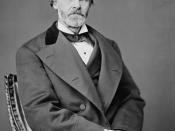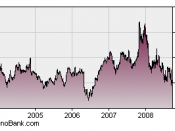In a freely competitive market, each competing business generally will try to attract consumers by cutting its prices and increasing the quality of its product or services. Competition and the profit opportunities it brings also stimulate businesses to find new, innovative and more efficient methods of production. Consumers benefit from competition through lower prices, better products and services.
The first U.S. legislation to curb agreements that restrict trade and reduce economic competition was the Sherman Antitrust Act, which was passed by Congress in 1890. It made it illegal to monopolize any part of trade or commerce in the U.S. In the early 1900s, Congress used the act to break up two monopolies, the Standard Oil Co. and the American Tobacco Co.
In 1914, Congress passed two more laws that further protected the competitive marketplace. The Clayton Antitrust Act outlawed the following:
÷ Trusts formed by two companies with interlinking boards of directors
÷ Fixing prices in agreement with other businesses offering competing products
÷ Making agreements with other businesses to control the supply and price of a product
÷ Abusing power to gain or maintain a monopoly
Soon after, Congress established the Federal Trade Commission to enforce antitrust laws.
The FTC has the power to stop companies temporarily from using suspected
anti-competitive practices, while the Justice Department probes and prosecutes businesses. When the U.S. government establishes in court that a company has been involved in antitrust activities, it can do the following:
÷ Break up the monopoly into well-defined components
÷ Force businesses to tell customers about competitors
÷ Force monopoly to distribute competing products
Some famous antitrust cases:
Year: 1911
Company: American Tobacco
Result: Declared illegal monopoly; broken up into separate companies
Year: 1911
Company: Standard Oil
Result: Broken up into separate oil refining and pipeline companies
Year: 1920...


